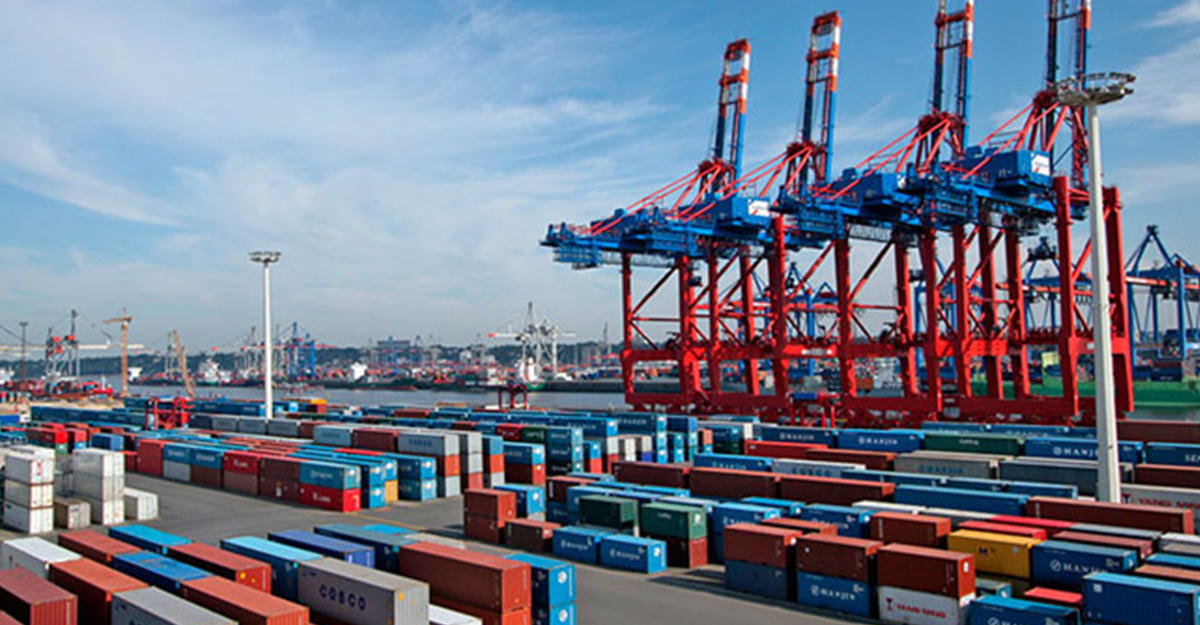EU cuts funding for Armenia

By Abdul Kerimkhanov
Despite the velvet revolution, European structures are in no hurry to make investments in a young democracy in the Caucasus.
In the next 11 years, the European Union (EU) and the World Bank (WB) will provide about 13 billion euros for the implementation of a number of large-scale infrastructure projects in six countries participating in the Eastern Partnership program.
Armenia will receive the least funding from EU - only 732 million euros.
In turn, the European Commission (EC) is ready to support the implementation of three transport projects in Azerbaijan for a total amount of 1.1 billion euros.
According to the “Indicative Action Plan for Investing in the Trans-European Transport Network (TEN-T)”, prepared by the EU jointly with the World Bank, the plan included a project to create five logistics centers (369 million euros), the creation of a free trade zone in the Alat settlement (410 million euro) and the modernization of the East-West railway (328 million euros).
A document prepared by the EU in December 2018 states that infrastructure projects in the Eastern Partnership countries are being implemented jointly with the World Bank.
The aim of the project is to promote economic development in the Eastern Partnership countries - Armenia, Azerbaijan, Georgia, Belarus, Ukraine and Moldova, which will lead to job creation, increased access to various markets and reduce the vulnerability of these countries to all kinds of shocks.
The presented program provides funding for transport infrastructure projects - roads, railways, airports, ports and logistics centers.
According to the EU document, under this program, Armenia will receive 732 million euros, Azerbaijan - 2.08 billion euros, Belarus - 1.25 billion euros, Georgia - 3.4 billion euros, Moldova - 917 million euros, and Ukraine - 4.45 billion euros.
Armenia, with funding from the EU and the World Bank, plans to implement six road projects, as well as to improve the Meghri border checkpoint. And that's all.
Now in Armenia, they are wondering whether why the least amount of money was provided for this country. In Yerevan, they counted on something more, taking into account the factor of "velvet revolution" and the image of the new authorities of Armenia. The current situation has once again proved that image is nothing compared to the real possibilities of a country and its economic interest for foreign partners.
Armenia cannot implement port improvement or port infrastructure projects due to lack of opportunities. The country could not also present railway projects since the Armenian railways were transferred to the concession management of the Russian Railways state-owned company of Russia, and the EU would hardly finance any Russian state organization.
The construction of a new Iranian railway is inexpedient from European point of view since there is already a rail link connecting the region with Iran through Azerbaijan. Therefore, the absence of port and railway programs in Armenia is quite evident.
No other projects capable of attracting large investments are implemented in Armenia. There are no plans to implement them, because the country is in a dead end, having no access to the outside world due to the occupation of the neighboring Azerbaijani territories that has been going on for many years.
The possibilities of Armenia, limited by aggressor policy, with all the benefits of its geographical position, put an end to its participation in large projects implemented in the region on the initiative and with the financial support of Azerbaijan. While Azerbaijan has already turned into a regional hub, Armenia confidently holds the “title” of a regional deadlock. And serious partners will not invest in projects that have no paths for development.
An example of what a serious regional project means is the free economic zone (FEZ) created by Azerbaijan in the Alat settlement, which also includes the largest international commercial sea port in the Caspian Sea.
Or the “North-South” corridor passing through Azerbaijan, which is designed for the transportation of goods from India and the Gulf countries to Russia, Western Europe, the Baltic and Scandinavian countries. Baku-Tbilisi-Kars railway is connected to the East-West corridor and has become its inseparable component.
The most important thing is to remind neighbors that Armenia could also be a part of all this. Now it's up to the Armenian society to take good lesson and make a right choice. Thirty years ago, it took a wrong step and came to today's grim reality.
---
Abdul Kerimkhanov is AzerNews’ staff journalist, follow him on Twitter: @AbdulKerim94
Follow us on Twitter @AzerNewsAz
Here we are to serve you with news right now. It does not cost much, but worth your attention.
Choose to support open, independent, quality journalism and subscribe on a monthly basis.
By subscribing to our online newspaper, you can have full digital access to all news, analysis, and much more.
You can also follow AzerNEWS on Twitter @AzerNewsAz or Facebook @AzerNewsNewspaper
Thank you!
